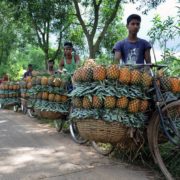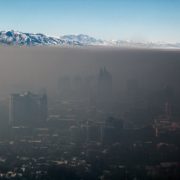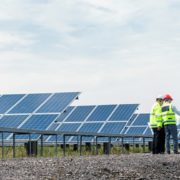Archive | Blog RSS feed for this section
Climate change, Energy, Finance sector development
 Agriculture and natural resources, Governance and public sector management, Health, Poverty, Social development and protection
Agriculture and natural resources, Governance and public sector management, Health, Poverty, Social development and protection
 Economics, Finance sector development, Health, Social development and protection
Economics, Finance sector development, Health, Social development and protection
 Energy, Governance and public sector management
Energy, Governance and public sector management
 Climate change, Finance sector development
Climate change, Finance sector development
 Agriculture and natural resources, Climate change, Environment
Agriculture and natural resources, Climate change, Environment
 Governance and public sector management, Social development and protection
Governance and public sector management, Social development and protection
 Climate change, Economics, Environment, Governance and public sector management
Climate change, Economics, Environment, Governance and public sector management
 Governance and public sector management, Information and Communications Technology
Governance and public sector management, Information and Communications Technology
 Climate change, Environment, Water
Climate change, Environment, Water

Green bonds show promise for financing energy-efficient buildings in Southeast Asia

The member countries of the Association of Southeast Asian Nations (ASEAN) have been experiencing a surge in energy demand due to their growing populations, expanding economies, and rising living standards. One reason for this rising energy demand is increased activity in the building and construction sector.
Rebooting food systems to achieve the unfinished agenda of global food security

Food insecurity continues to be a pressing issue worldwide, despite scientific innovation and technological advancements in agriculture. Therefore, food security continues to be at the center of the global development agenda. The burgeoning demand for food due to exponential growth in the world’s population and the mismatch between demand and supply due to factors such as climate change, loss of soil fertility, land degradation, water scarcity, food loss and waste, and inefficient distribution systems, have exacerbated the problem of food insecurity.
Remittance inflows giving resilience to Bangladesh’s rural economy amid COVID-19

While the World Bank has identified Bangladesh as one of only three big economies that had increases in remittance inflows in 2020, along with Pakistan and Mexico (Ratha et al. 2020), and remittances have long made up a substantial share of people’s income in the country, preliminary results from a recent study supported by the Asian Development Bank Institute (ADBI) finds surprising resilience for remittance inflows into the rural economy during the first wave of the coronavirus disease (COVID-19) pandemic in Bangladesh.
Kazakhstan and the Kyrgyz Republic need more than energy access to promote clean fuels

Air pollution in the cold countries of Central Asia is particularly high during winter due to the consumption of solid fuels for space heating. Evidence-based policy recommendations are needed to facilitate the transition from solid fuel consumption to the use of cleaner fuels for residential heating and cooking, particularly in Kazakhstan and the Kyrgyz Republic. This is important not only for improving health conditions for the inhabitants and visitors in these countries but also for reducing the life-threatening health hazards arising from indoor cooking and heating.
Which financing sources matter for private investment in renewable energy in Asia?

The mobilization of climate finance is critical for limiting global warming to within 1.5°C and preventing catastrophic climate change (IPCC 2018). Annual green investments totaling $1.5 trillion are needed (United Nations 2017). Despite the falling cost of renewable energy technologies, energy investments remain dominated by investments in fossil fuels. In Asia and the Pacific, annual investments fell after 2017 and until 2020 remained below the 2017 level.
Unraveling the linkages between agriculture and climate change

The connection between climate change and agriculture (both crops and livestock) is complex. On the one hand, agriculture is adversely affected by climate change (Aryal et al. 2020a; Lobell et al. 2011), but on the other hand, it is also one of the major factors exacerbating climate change (Smith et al. 2008; Aryal et al. 2020b). Climate-smart agriculture (CSA) could play a crucial role in reducing GHG emissions and mitigating the adverse effects of climate change.
Social infrastructure to drive sustainable development in Asia beyond the pandemic

The coronavirus disease (COVID-19) pandemic discriminates in effect against the poor and the vulnerable, who have weaker immune systems and lack access to treatment and social support due to their economic status. The virus and social-isolation measures have caused a large increase in unemployment for lower-income segments of the population and depressed demand in industries with lower-income workers. It has been estimated that an additional 88 million–115 million people were plunged into extreme poverty in Asia in 2020, a figure that may rise to 150 million by the end of 2021 (Dartanto 2021: 7).
Unfolding a holistic approach to disaster risk reduction

This year marked the 10th anniversary of the Great East Japan Earthquake, of which economic losses are estimated at $221 billion (EM-DAT), making it the most costly natural disaster recorded since 1900. The earthquake itself did not cause significant damage or casualties, but the subsequent 5–20 meter tsunami hit northern coastal areas, washing away townships and destroying the cooling system at the Fukushima Daiichi Nuclear Power Plant. To date, the recovery process is still ongoing to restore industries and economic activities to their pre-disaster levels.
Taxation and digitalization in the COVID-19 era

The coronavirus disease (COVID-19) pandemic has created challenges for tax administrations and is constraining tax revenue in many countries. Its impacts have caused the global economy to slow down, leading to reduced tax collection. However, the pandemic has also changed social habits and encouraged people to use digital technologies.
Climate change impacts in Asia are all essentially a water story

Global climate change caused by human activities will continue to be catastrophic for humanity. In particular, climate change is having serious impacts on the world’s water systems (United Nations 2020), and changes in these systems can have an enormous impact on people’s lives. This is because water plays a critical role in the very existence of all forms of life on earth as the foundation of human well-being and prosperity (Asian Development Bank 2020) and a source of life and livelihoods.


Search
Subscribe / Connect to Asia Pathways
Subjects
- Agriculture and natural resources
- Blog
- Capacity development
- Climate change
- Economics
- Education
- Energy
- Environment
- Finance sector development
- Gender
- Governance and public sector management
- Health
- Industry and trade
- Information and Communications Technology
- Infrastructure
- Miscellaneous
- Population
- Poverty
- Private sector development
- Regional cooperation and integration
- Sanitation
- Social development and protection
- Transport
- Uncategorized
- Urban development
- Video Blog
- Water




Recent Comments